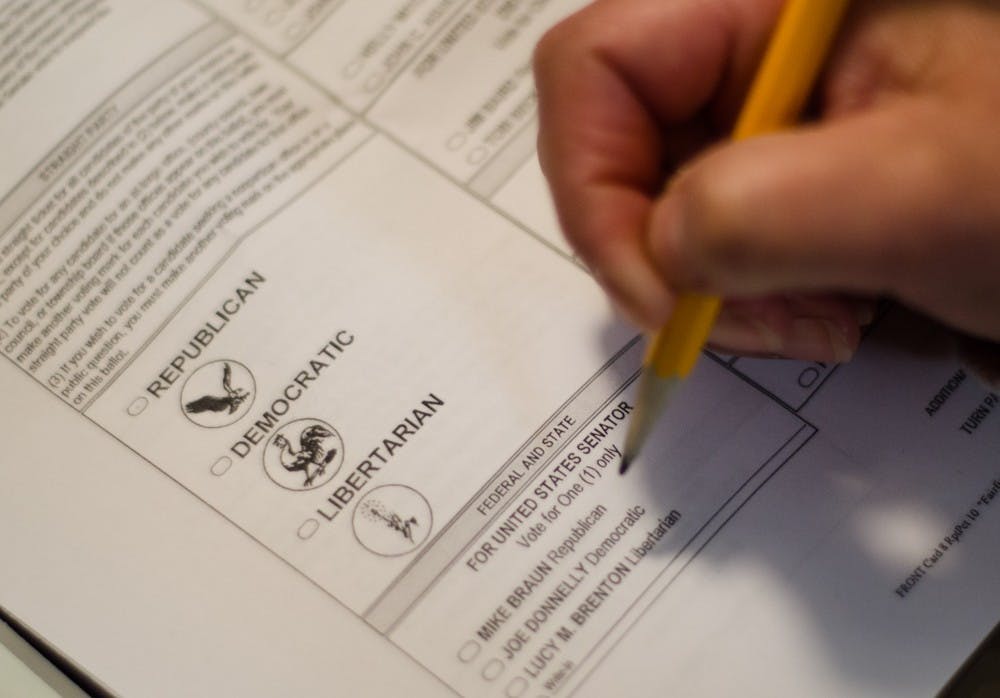In a biannual struggle for control of the government, most voters find themselves casting a vote for either Republican or Democrat, leaving third parties, like the Libertarian or Green parties, with little representation.
Jacob Baldridge, former president of the Ball State chapter of Young Americans for Liberty, a student Libertarian organization, said third parties are a necessary component of the American political process.
“Voting third party addresses the idea that we can at least challenge the major parties to make a change or cater more towards whatever that third party is,” Baldridge said.
Baldridge said he thought third parties stand a very small chance of winning election races this year, but he remains optimistic of the value of voting beyond the two major parties.
“Some would call it a protest vote, but I’m voting for what I believe in, and that’s going to take away from the two major parties,” he said. “The members of those parties are going to have to take notice.”
Third parties have taken a sizable percentage of the popular vote in recent elections.
In the 2016 presidential election, Libertarian Gary Johnson took in nearly 4.5 million votes and Green Party candidate Jill Stein earned almost 1.5 million votes, compared to nearly 63 million votes for Republican Donald Trump and nearly 66 million votes for Democrat Hillary Clinton.
While major party platforms adhere to the core tenets of their respective ends of the political spectrum, professor of political science Michael Maggiotto said third party platforms are widely different in range and issue.
“There are different kinds of third parties. Some are splinters from a main party, some are issue-oriented and some are an individual’s cause,” Maggiotto said.
For example, he said the Green Party platform is largely based on environmental issues and the Libertarian Party believes in a minimal government that interferes as little as possible.
Prior to the Civil War and the dominance of the Democratic and Republican parties, parties like the Democratic-Republicans, Federalists and Whigs all elected presidents to the White House.
Outside of even the third parties, there are write-in candidates who are not governed by laws that dictate the way candidates make their way onto a ballot.
“Most typically, it is about getting a certain number of signatures from constituents [in order to appear on a ballot]. If a party has been on the ballot previously, it can automatically be added to the next year’s ballot,” Maggiotto said.
Contact John Lynch with comments at jplynch@bsu.edu.





